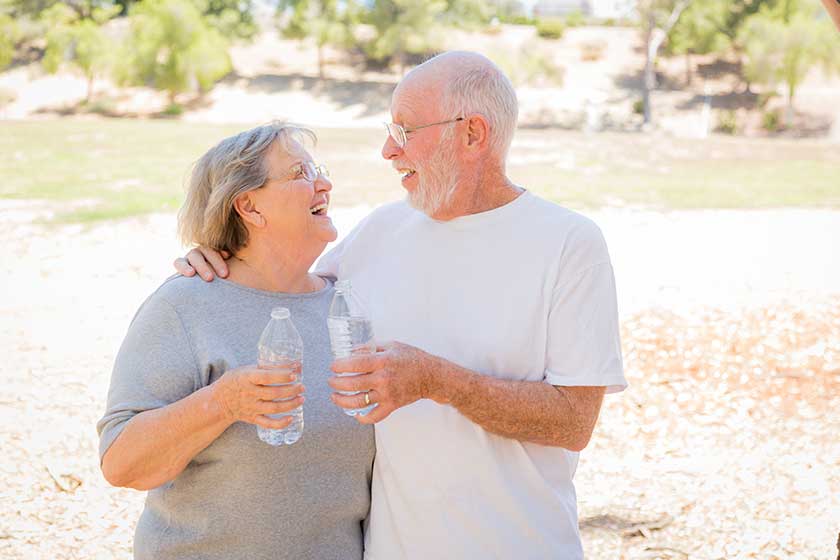When it comes to staying healthy, proper hydration can make or break your health goals—especially as you age. Older people often have a diminished sensation of thirst, which leads to a decrease in the intake of water. As such, we may have a higher risk of becoming dehydrated.
Symptoms of dehydration can range from fatigue to dizziness, abnormal bodily functions and even seizures. When we are dehydrated, we may also be at risk of falling, suffer from poor digestion, have reduced blood flow, and may subsequently experience many other serious issues that can harm our health over time. Here are a few quick and easy hydration tips for seniors so you can stay adequately hydrated!
Follow the Recommended Daily Fluid Intake
Make it your personal goal to drink at least six to eight glasses of water daily. You can do this by making sure you always have a water bottle with you. Having easy access to water will encourage you to take a couple of sips throughout the day. If you’re living in a warmer climate and tend to perspire more, your fluid intake should increase and become more frequent. However, bear in mind that in cold weather, you’ll still need to drink up even though you don’t feel thirsty.
Healthy Alternatives to Water
Fluid intake doesn’t only equate to drinking water. You can also stay hydrated by taking milk, fresh fruit and vegetable juices, or coconut water. However, not all liquids can be considered good alternatives! Do note that caffeinated and alcoholic drinks act like diuretics, and will lead to loss of water from your body. As such, they should be consumed in moderation.
Consume Food with High Water Content
Water, beverages and soup are not the only source of fluids. Consuming food with high water content is a way to get enough fluids into your body too. Fruits like watermelon, grapes, apple, orange, blueberries and cantaloupe can pack a hydrating punch. At the same time, vegetables such as tomato, cucumber and bell pepper will make for a healthy fluid-filled snack. You don’t always need to consume these fruits or vegetables as snacks on their own—try including berries into your cereal or yogurt, or adding tomato slices and lettuce in your sandwiches. Every little addition, no matter how insignificant it may seem, can contribute to your fluid intake for the day.
Moisturize Your Skin
Moisturizing our skin is essential to ensure that it stays youthful-looking. However, it is just as important to protect it. We lose water through our skin all the time. As such, we should moisturize our skin with a moisturizer that is suitable for our skin type. If your skin is prone to dryness, you can try to seal off your moisturizer application with some oil too. If you’re shopping for an eye cream or face lotion, you should look for one that contains hyaluronic acid as it can help your skin to retain moisture and keep it hydrated.
Do you have any other hydration tips to share? While these hydration tips are beneficial to our health, we need to remember that for some people with chronic medical conditions like heart, kidney or liver disease, they may need to intentionally restrict their intake of fluids. Hence, it is always advisable to communicate with your doctor to get a good understanding of your health and body condition.








